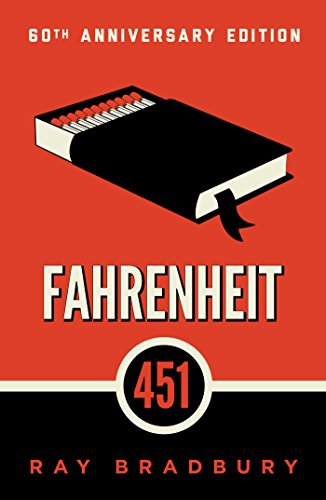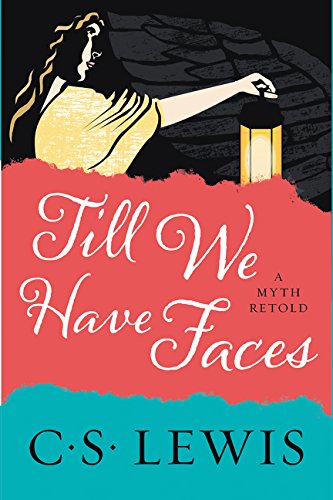Train Up Your Wizards in the Way They Should Go (Part 1)
/The opening lines of Charles Dickens’ A Tale of Two Cities are among the most recognizable passages in literature—it was the best of times, it was the worst of times. The description is simultaneously timeless and time-bound: written in Victorian England, depicting the eve of the French Revolution, but somehow no matter how much time passes, it seems that they ring perpetually true. “It was the best of times, it was the worst of times.” Isn’t it always?
In short compass, Dickens manages to draw from his historical moment a broader truth about the human condition: “[I]t was the season of Light, it was the season of Darkness, it was the spring of hope, it was the winter of despair.” We humans, it seems, are continually caught between two extremes: our promise, creative potential, and idealistic possibilities on the one side and our hubris, destructive capacities, and cynical bent on the other. If you don’t believe me, a quick glimpse at your social media feed will prove my point.
Okay, yes, admittedly—we’re nowhere near French-Revolution-era craziness. No one’s brought out the guillotines. At least not yet. But I daresay that most of us can recognize something of our current cultural moment in this iconic Dickens quote. We rally behind one another in the wake of national disasters, volunteering our time and money to restore communities; meanwhile other communities are languishing in the thrall of opioid abuse. Our technological and artistic ingenuity is at an all-time high, with brilliant new gadgets and imaginative creations released daily, while fraud and corruption, violence and ill-health run rampant across the country.
How then do we proceed? What might provide some hope in these troubled times? There are a slew of answers on offer, many of them politically focused—protest, lobby, legislate, vote, agitate. While I don’t think those responses are wrong per se, I do think that absent a personal, individual revolution of the wills and characters of those who make up society, these political maneuvers will merely widen the divide between us, and deepen the challenges we face. Dickens, concerned as he was with the state of Victorian culture and its societal tendencies that had ground many of its people down, suggests another avenue for correction. George Orwell—of all writers—found something about this vision compelling, even if he himself preferred the political: “There is no clear sign that [Dickens] wants the existing order to be overthrown,” Orwell reflects, “or that he believes it would make very much difference if it were overthrown. . . . His whole ‘message’ is one that at first glance looks like an enormous platitude: If men would behave decently, the world would be decent.”
J. K. Rowling’s Harry Potter series, I think, follows this same line of thought. She has, in fact, identified Dickens as an important influence on her work. Like Dickens, Rowling is asking about the cause of our woes and what remedies are on offer and, I argue, drawing similar conclusions. In the pages of her seven highly imaginative, fantastical Harry Potter books, we find—surprisingly enough—a realistic world much like ours, filled with characters that mirror the best and worst of us and who experience the very same joy and despair. Like us, Rowling’s wizards and witches long for good to prevail over the evil they see around them and sincerely want to do the right thing. Well, most of them anyway.
But those others are just as instructive in the moral arc of Rowling’s story and especially in the lessons it provides for readers. Because, let’s face it, Rowling—like most great storytellers—is a master teacher. Harry Potter is not simply set at a school; the series itself is a school, training readers to recognize, prefer, and enact what is good and right. The venerable Roman poet Horace famously said that literature should teach and delight, and Rowling executes his charge well, as readers watch her characters navigate situations that challenge their heart and mind, identify and hone their values and beliefs, and ultimately shape their very selves in their moral choices—for good or ill.
At the center of this education, of course, is the enchanted Hogwarts School of Witchcraft and Wizardry. Each year, young wizards throughout Britain await their acceptance letters with bated breath (or for muggle-borns like Hermione, are taken by surprise by them). These spirited scholars head off each fall to the fabled Scottish castle, to take up exotic subjects like transfiguration, potions, herbology, and the daunting defense against the dark arts. Here they get initiated into the world their older siblings and parents have already been a part of—learning to fly, caring for magical creatures, and finally trying their hand at apparition. It’s a fanciful world, and I know we’d all welcome our own Hogwarts invite. But as whimsically as it’s described, we can’t forget that the curriculum is not merely fun and games for these students. It’s real, hard work. They train, practice, fail, try again. They sometimes face disagreeable and downright cruel professors yet have to learn the material despite those challenges. Those O.W.L.s and N.E.W.T.s won’t pass themselves.
These magical skills are crucial to living in Harry, Hermione, and Ron’s world, and the three friends have varying degrees of success mastering them. Arguably these wondrous features are what make Harry Potter the phenomenon it is. Readers thrill at the games of Quidditch, imagining the students aloft on their broomsticks. They cheer for Harry as he participates in the Triwizard Tournament, putting his magical training to the test. Without the children’s initiation to magic, they’d have no access to Platform nine and three quarters or Diagon Alley, no Patronus charm to fend off the dreaded Dementors. The spells and charms and magical properties of myriad objects in Harry Potter enlarge the story’s possibilities to be sure. Pictures move and talk, invisibility and shape-shifting are live options, as are mind reading and talking with snakes. But, even though magic is at the crux of the Hogwarts curriculum, these magical techniques do not constitute the real education the books offer—neither to the characters nor to the readers. These, in fact, are mere machinery, available to the good and bad characters alike. In fact, someone as wicked as Voldemort has magical abilities at least as strong as those of the virtuous Dumbledore, if not more so. On a smaller scale, we see this contrast play out between Harry and his friends and Draco Malfoy and his.
In The Sorcerer’s Stone these children arrive at Hogwarts full of promise, and in many ways, both sets of friends follow the same path: taking classes, learning their spells, and growing in magical acumen. But that similarity is of little concern to the story; what matters more—what is in fact crucial—is that their paths diverge, as they learn (or reject) the deeper lessons and inculcate in themselves (or don’t) the virtues of friendship and love. They—and we—learn well what Dumbledore notes in The Chamber of Secrets, “It is our choices, Harry, that show what we truly are, far more than our abilities.” What the contrasts between Harry’s and Draco’s friends show is that an education caught up in teaching only technique—encouraging children’s hands and minds but not guiding their heart—is not one worthy of its name. I think we all know this, but that often doesn’t translate to the dominant view of education in our own world. We don’t have magic, of course, but technology seems to function similarly for us. Who hasn’t, at least once, been wowed by the newest gadget? Every year we hear about new medical advances, feats of modern engineering, and manufacturing capabilities that would have been unthinkable even twenty years ago. Arthur C. Clark captures the connection well with his proverbial quip, “Any sufficiently advanced technology is indistinguishable from magic.”
As with those in Harry Potter, we can easily confuse (or prefer) technical expertise and training with humane education. In many higher education circles, this shift toward the technical and practical—this emphasis on vocational training over the liberal arts—is just about complete. The number of humanities majors are shrinking, and fewer state dollars are going to support the liberal arts overall, deemed too impractical to add value to communities. On one hand, this shift is understandable. People need jobs. The market is changing, and demand for technical skill is on the rise. However, the danger, as I see it, in getting so fixated on these technological pursuits, we might become mindless technophiles, subordinating all else to what Neil Postman has identified as “the sovereignty of technique and technology.”
In other words, we might mistake the means of education for the end of education. But, as Postman notes, “Any education that is mainly about economic utility is far too limited to be useful, and, in any case, so diminishes the world that it mocks one’s humanity.” The Harry Potter series knows (and shows) that, although the magic it depicts (and the technology of our world that it mimics) may mesmerize us, it is neither the cause of nor the solution to our deepest human problems. Instead, the story directs our attention to other, more fundamental concerns—the virtues that make the real differences in the characters’ lives and well-being, chief among them are humility, courage, and love. These virtues are the bedrock of a good life and our full development as human beings; they nurture and grow our spirit and soul. These are the lessons taught by Rowling, learned by Harry and his friends, and inculcated in the readers’ imaginations.































